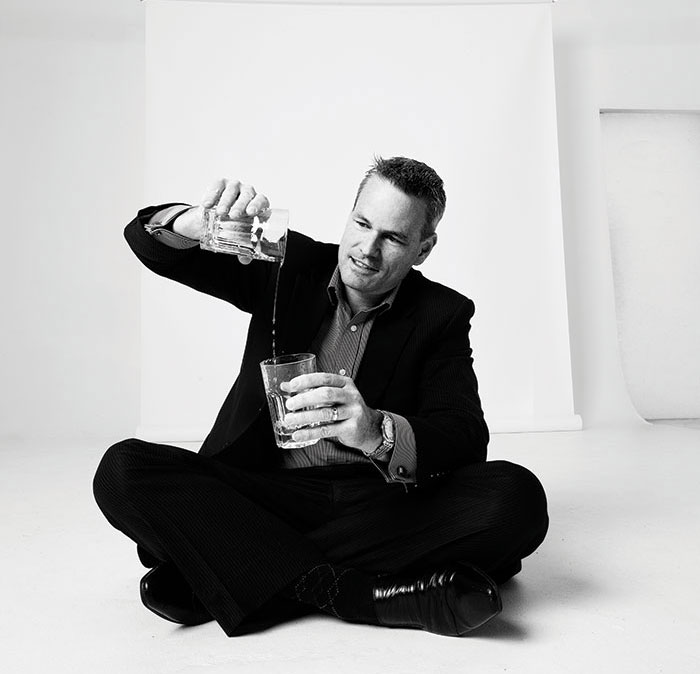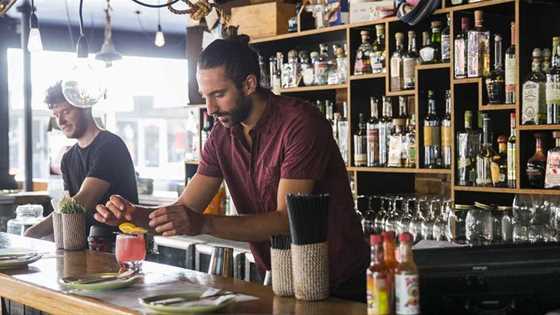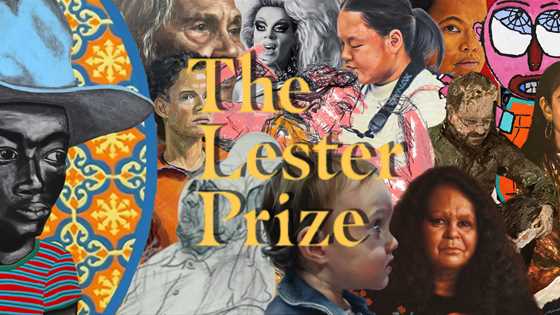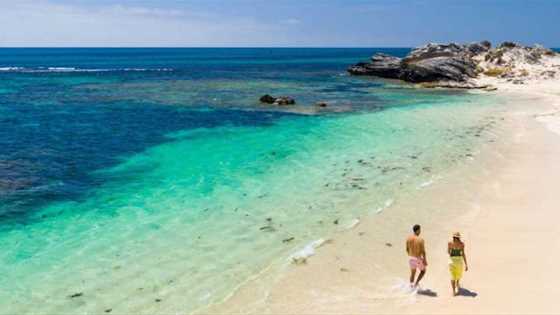From the waterfront to the water supply, WA is changing. What’s the future? We asked a cross-section of locals to share their vision of Perth and beyond in the year 2020.
BRENDON GRYLLS
For the WA National Party leader, life outside the cities is the way forward. Not just economic life, but community life, too. “My focus is the north-west,” says the Minister for Regional Development, who wants WA’s resources to help shape the regions.
Regional development is good for Perth. We need to decentralise the population. That will make the freeway usable, the hospital system usable, the beaches accessible. If everyone tries to live in Perth, Perth becomes like Sydney. And people love Perth because it’s not Sydney.
Supertowns will help take some pressure off the city. If WA’s population is going to double by 2050, you’ve got to have a plan for where the people are going to go. While Perth argues about urban sprawl and infill, towns like Collie, Esperance, Katanning, Northam, Jurien Bay and Morowa – communities with strong economic drivers – offer great opportunities. Young families that want the quarter-acre block and the chook yard are probably going to find it outside the metropolitan area. Places like Midland should be looking to the Avon Valley as the place where people live and commute – it’s only a half-hour away.
I don’t think you’d call this a boom. Boom suggests it’s going to end. The resources sector is enjoying sustained and rapid growth. It’s important that we have strong development of the north-west. Fly-in fly-out is not a long-term solution. We need strong communities, with good planning. We’re determined to get liveability and amenity right. It’s not enough to have good jobs. You need access to a nice house, nice coffee, and a haircut.
In 2020, we’ll be getting very close to our target of 50,000 people in Karratha, city of the north. The Ord River basin will have more than doubled its agricultural production. I expect you’ll see five trains of gas processing at the Browse Basin, and a new industry arising. These regions need real industry, not just tourism.
.jpg)
Gemma Smith
GEMMA SMITH
Gemma Smith is helping shape the world around us – literally. A director at local architecture and planning firm Hocking Heritage Studio, she is currently working on the massive Perth Waterfront and Perth City Link projects. While these developments are set to modernise our city, Gemma is also helping preserve its past. Once a conservation officer in Oxford, she is now looking after local heritage sites including the Perth Town Hall and Raine Square Redevelopment. “It’s important for the city to grow, we just need to be mindful of keeping its character,” says Gemma.
Perth is predicted to double in size, so we need to accommodate that. The city is definitely going to be high-rise. Buildings will go up and there will be fewer vacant blocks of land. It’s going to become much more dense. I think that’s the main way forward.
The Perth Waterfront project will have a huge impact. To bring development down to the river is a very simple idea, and yet it can change the dynamics of the city so much. People will be able to interact more with the river on a daily basis, and use increased services available there.
Development has to go hand-in-hand with public transport. The wider vision is to increase light rail and put more suburbs on the train line. People are very attached to their cars. But if there’s a greater public transport system reaching a wider area, then I think more people may consider using trains – especially if they’re going to be faster.
We can keep our historic roots while progressing into a modern city. You don’t have to wipe out every old building just because it doesn’t necessarily suit modern usage. They can be adapted. The Raine Square Redevelopment has heritage buildings around the bottom, and a brand new structure coming out of the top. One 40 William Street is the same, and there are other examples around Perth where old and new just go together.
Most people want to see the city grow, while keeping its identity. Perth isn’t as frantic as Brisbane or Sydney, and it should retain that laid-back feeling. But a slower pace doesn’t have to stop development. We’re not so much a nine-to-five community anymore. Our hours are all over the place. The city is moving along with the times in terms of architecture, but it needs to move along with the times in terms of trading hours and services too.
.jpg)
Tim Kenworthy
TIM KENWORTHY
As the Childlike Enthusiasm Officer (CEO) of Youth Tree, 21-year-old Tim Kenworthy is helping to cultivate a new generation of leaders. Silliness is part of the modus operandi for the Perth-based non-profit organisation, but ‘doing good’ is its main thrust. Big Help Mob – a rent-a-crowd of young folk gathering en masse to help sectors of the community in need – seeks to reinvent tired notions of volunteering. “We want to use creativity and fun to make doing good in all its forms as mainstream as cheeseburgers and breathing,” says Tim, who sees change afoot in the way West Australians help.
People don’t want to be told the world is screwed and they should give up their entire life to change it. It’s really important to use fun – and I don’t mean vague, hollow optimism – to get the message across. It’s delight, not fright, that makes people act. If we can play our part well – and we’re just one part of a movement of organisations and young people doing incredible things – I think we’ll see some pretty significant changes in 2020.
I’m pretty sure there’ll be more volunteering. Somewhere along the line we lost the sense of community that made people feel connected. We’re trying to reinvent what volunteering feels like. As soon as you give someone an avenue to do something useful, it really flicks an altruism switch. I see there’s massive potential to make volunteering fundamentally mainstream. It shouldn’t be extra-curricular and formalised. It needs to be really embedded in our culture again. The question won’t be, “Are you the sort of person who volunteers?” it’ll be, “What are you involved in?”
Corporate social responsibility is in its infancy. I think it’s going to be pretty unrecognisable in 2020, in a really good way. Some corporations are now looking at how they can embed doing seriously useful things – for the disadvantaged, for the environment – into their core reason for being. There’s a deep change afoot. People are looking hard at the way they behave in the world, to make sure it’s consistent with everybody’s right to live on a clean planet and have justice.
We’ve got so much in WA that we take for granted. It’s literally one of the best spots in the world. There’s one thing we could do better; the majority of conversations I hear are centred on complaining. I would love to see more willingness to give for good reasons. We’d love to see Youth Tree reach further and wider than Perth. Ultimately it would be pretty amazing if Perth could become the altruism capital of the world.

Bradley Woods
BRADLEY WOODS
In July, Bradley Woods led a delegation to the UK to entice first-rate workers to Perth. The CEO of the Australian Hotels Association (WA) says quality service is just one aspect to address in a much-needed overhaul of the State’s hospitality industry. WA’s repressive regulatory legislation, he believes, is failing to meet the expectation of an increasingly vibrant, sophisticated society.
Western Australia once had the most progressive trading laws in the country. Sadly, this is no longer true. By the year 2020, we will have a significant increase in population due to the mining boom, and we must reverse the current trend of placing restrictions on the industry. The needs of the public will determine this: shift workers, niche tourism and an expanded MICE sector (Meetings, Incentives, Conferences and Exhibitions) will demand greater flexibility of trading hours.
The beer-barn pubs of the past are now extinct. Large pubs have been transformed, dictated by the public’s desire for sophisticated food and beverage options. Small-bar licences are being snapped up, and niche five-star hotels are being established in renovated historic buildings that would have otherwise been demolished. The State government has made progress in these areas, but the overall budgets need to be doubled to attract national and international events to fill vacancy downturns.
Our isolated location means Perth will never become an international tourism Mecca. We should play to our strengths. People come to the state for our unique landscapes and holiday experiences. Regions such as the Kimberley, Coral Coast and South West will boom by the year 2020, and we must ensure that hospitality infrastructure is ready to cope with demand, otherwise our reputation will suffer. This means freeing up regulatory restrictions that hinder progress.
The industry is working with government agencies to promote responsible alcohol service and consumption. Anti-social behaviour centres on a small minority, yet has a profound effect on the majority of well-behaved members of the public, who have been forced to endure prohibitive regulations. The public should not be punished for the behaviour of a small section of society. It takes time to change a culture, but it is happening, and all responsible groups within the industry are working towards this objective.

Mike Hollett
MIKE HOLLETT
Water is Mike Hollett’s bag. He began his working life as a hydrographer, mapping and measuring the earth’s surface water. A 20-year stint with the Water Corporation in Perth cemented his reputation as an expert in the field. Now CEO of National Lifestyle Villages, he retains a passion for water conservation and innovative recycling technology.
We’ve got to come to terms with recycling waste water. Addressing future water shortages must begin with a ‘Big Picture’ response to the problem. We pipe in roughly 300 gigalitres per year to Perth and surrounds, and 135 gigs go to the ocean as waste. Given the undeniable drying trend, that’s an unacceptable situation. It’s without doubt the single great issue to deal with in the next few years. Left unaddressed, we will have complete sprinkler bans within a couple of years.
Fear of drinking recycled water is irrational. It’s understandable, given the woeful lack of information available to the public. Treating sewage waste water is only the beginning of the process. Waste water is treated to drinking standard, then deep-injected one kilometre underground for 30 years, where it undergoes further natural filtering. The water is then raised to the surface and purified again before reaching our homes, cleaner than our current water supply. Once this process is understood, fear and hysteria will cease.
Governments need to reduce red tape and deregulate. Private industry needs quicker access to waste-water treatment licences. At present there are too many agencies in the way. Major desalination projects should continue. New incentives and rebates should be offered for conserving water. There should be mandatory disclosures on water and energy ratings on homes for sale. New housing estates must be encouraged to include a ‘third pipeline’ for recycling grey water.
Individuals can make a difference. In 2004, we were recycling six per cent of our water. We are now recycling three. It’s outrageous. Run-off water tanks in homes are valuable, even if just for introducing homeowners to the importance of recycling and conserving. We have to educate ourselves, and demand our leaders form a vision for the future.
.jpg)
Professor Samina Yasmeen. Arabic script (translation: I still call Australia home) courtesy of the Arabic Department at Langford Islamic College.
PROFESSOR SAMINA YASMEEN
Cultural diversity inspires Professor Samina Yasmeen, director of the Centre for Muslim States and Societies at UWA. A prominent speaker on ethnic affairs, Samina is also a member of the Australian Multicultural Advisory Council, among other organisations. She says creating a cohesive community depends on all of us: “What’s important is that people learn from each other and have an openness about accepting difference.”
We live in a lucky country, but Western Australia is really lucky. We’ve got huge areas and rich resources. We are really at the cusp of a new identity, but more people are needed to sustain that. We can’t see them simply as nuts and bolts. When people come here as guest workers, they should feel they are coming as members of society. Equally, you can’t be a member of society if you think you are only here to earn money.
Business has a responsibility. Mining companies need to provide educational programs that promote different cultures – not just from the perspective of how we can do business there. The questions should be: how do we understand these people? And how do we engage members of our community to become a kind of ambassador to those places?
There’s a need for education on the refugee issue. People need to know that not everyone coming by boat is Muslim, and not every Muslim is a polygamist or a terrorist. We also have to accept that a lot of people come here on planes and seek asylum. So it’s a poorer class that takes the sea route – and there is a level of desperation with that. I’m not saying we should open our borders, but I would like to see the debate become more humane.
It’s really through interaction that we learn from each other. I think it’s important that we find projects where Muslims and non-Muslims can come together – such as inter-faith dialogue, where Christians have invited Muslims to spend time with them. There’s a big difference between reading about Islam, and the sort of violence it is associated with, and then meeting Muslim people. You discover they’re just like us.
.jpg)
Dennis Eggington
DENNIS EGGINGTON
University lecturer, CEO of the WA Aboriginal Legal Service, and delegate to the United Nations Commission on Human Rights are just a few of the hats Dennis Eggington wears as he pursues his dream of full and fair representation for all Aboriginal and Torres Strait Islanders in the ‘great experiment’ of Australia’s ever-evolving society.
We must redress law and order issues. The citizens of this great nation – not the government and the media – must decide what it is we want: more prisons, or justice re-investment. We have been hoodwinked by hysterical reports of lawlessness, and led to believe that we are not safe in our own homes. Ours is one of the safest societies in the world, yet we pursue a legislative program of harsh penalties and punitive measures that simply don’t work. The least-represented members of society suffer the most: Indigenous youth, the uneducated, and the mentally ill. Our aim must be for lower imprisonment rates.
Education is paramount to positive change. We should encourage mining companies, in cooperation with government, to share the nation’s wealth by building first-rate schools in the Kimberley and Pilbara, where Indigenous and non-Indigenous children can receive the same quality training and education that’s available at the finest Perth schools. There is no reason that a good education should be denied to any Australian child, and it would be in the interest of the public and private sectors to work towards this by 2020.
Aboriginal self-determination is tied to sovereignty. By 2020, I would hope we are closer to recognising the National Congress of Australia’s First Peoples as a truly national voice in the political landscape, represented as individual Indigenous nations or as a collective.








